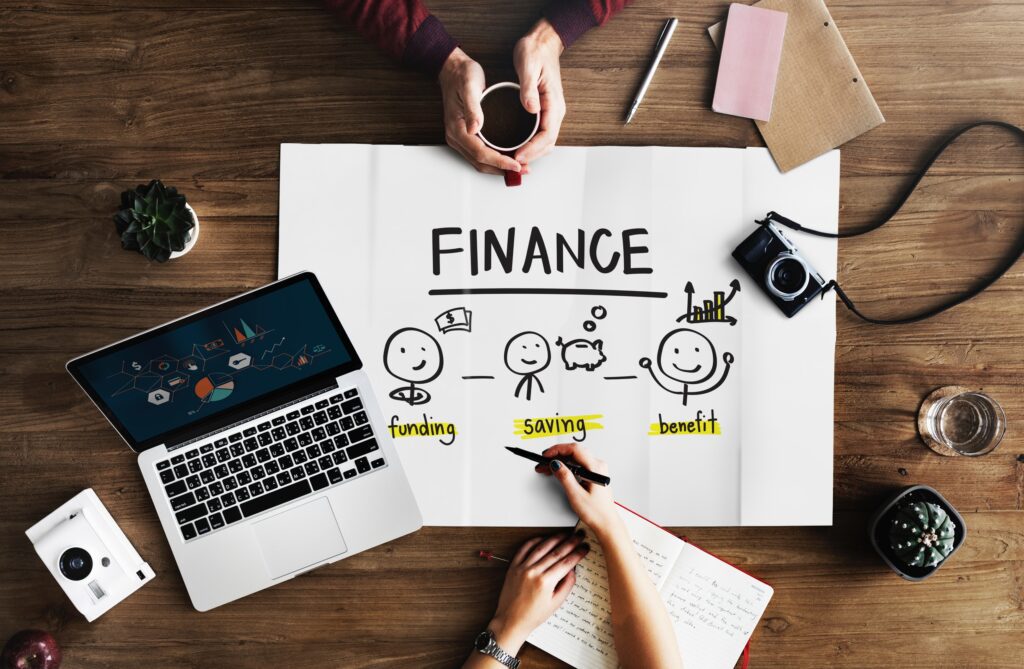Everything is getting more expensive.” Many people probably know this sentence from their grandparents. In 2022, it is truer than it has been for a long time. This is reflected in many consumer goods. Oil, gas and grain prices are on the rise, thus e.g. petrol, energy and food costs.
Many of us literally have to tighten our belts and ask ourselves: how do I survive against inflation? You may think that saving even more is impossible with your starting situation. But sometimes it’s not more money that’s needed, it’s just a change of mindset. We will show you how to do that.
What higher inflation means and how to survive it
It is very important that you understand the actual economic situation. Therefore, we will briefly explain what inflation means. We speak of inflation when there is a broad increase in the price of goods and services (not just of individual items). In simple terms, it describes the loss of value of money. This means, in effect, that you can buy less with your money. Maybe you still earn the same temporarily, but the value of your salary decreases.
Inflation: Prices on the Rise
The Federal Statistical Office measures inflation every month using a price index for 750 goods. The following products are included in the fictitious basket of goods:
Essential everyday products (such as food, newspapers and petrol)
Consumer durables (such as clothes, computers and washing machines)
Services (such as hairdressing, insurance and rent payments
Each of these products in the basket has a price that can change over time. The European Central Bank states: “The annual inflation rate is the price of the whole basket of goods in a given month compared with the price of the basket of goods in the same month of the previous year.”
A rate below 5% is usually considered positive as it boosts consumption and therefore the economy. We currently have a very high inflation rate (7.5% as of June 2022). Wages are rising much slower than prices, which is bad for consumption. The economy is declining. We speak of a recession in this context.
You want accurate, up-to-date figures and to compare your personal inflation with the official rate? Click here for the inflation calculator of the Federal Statistical Office. Of course, this news is not reassuring and we understand if you are wondering how to deal with this situation. So we have four simple, essential tips on how you can counter inflation.
OWN YOUR FINANCES! Finally want to get a handle on your finances? Know where to start to be financially independent? Get your support now and arrange a FREE ESPRESSO COACHING! Your financial freedom with our experts!
Four tips for the current inflation
1. Create a new budgeting plan
It is always important to know what your income and expenses are. Especially in difficult times. We recommend that you create an overview by making a list. You can use an income and expenditure calculator.
Maybe you have an “aha moment” and see that you leave too much money in restaurants or cafés. Or you realise that instead of buying branded products, you could buy the cheaper option.
It seems trivial, but the comparison of expenses spent and income often shows us what we really need and what we don’t need. You already have an overview and want to know how you can save in the current inflation?
2. Savings account
Let’s take a look at the energy prices. You may think that it makes little sense to put money aside in times of inflation. This is partly true, as money loses value.
Nevertheless, you should make sure that you have emergency funds available. You don’t need to have a lot of money lying around in a bank account. The amount should cover two-three months if you are employed and about six months if you are self-employed.
It is important that you only access this account in an emergency situation. Now the money cushion is suitable to cover you not only for loss of job or income, but also for high energy prices and utilities. It is possible to use a current account to invest money for short-term savings. You won’t make much profit, but since the base rate was recently raised, interest rates on other accounts are also rising for the time being. Note, however, that this is more of a short-term thing.
Other consequences of inflation will not increase your assets much. So remember: The account is suitable as a safety buffer, e.g. for the upcoming high gas bill. It is less suitable for long-term savings.
3. Investing in ETFs
Have you already saved enough money to cover yourself for “bad times”? Great, then you are ready for upcoming bills. But you might also be asking yourself: “Is now a good time to invest my money?” or “What will happen to my savings?
Now let’s talk about long-term goals. It is still important to think about your future. Even in an inflationary environment. Because the following always applies: The earlier you invest, the better you can close your pension gap.
It is important to keep the current economic situation in mind. The situation argues against accumulating more money than necessary in an account, as it is very likely to lose value. At present, it can make sense to invest passively in shares via ETFs (Exchange Traded Funds).
So you can either start with that or gear your existing investment more towards the stock market, i.e. include more stocks in it. The aim is to generate higher returns to beat inflation. Since we are currently between 7% and 8% (as of June 2022) in Germany, this seems difficult for now.
However, there are still ways and means to counter inflation even with cash investments. The MSCI World, for example, gained 9.1 per cent year-on-year (as of spring 2022). By investing, you participate in more than 1,500 of the largest and most innovative companies in the world. This reduces fluctuations in the long term and follows the trend of the global economy.
If you decide to invest in ETFs, you can consider integrating the MSCI World into your portfolio, for example. Are you interested in ETFs but still need a little support? Book a free 15min introductory call with one of our financial experts.
Rethink your risk appetite for investments. Or maybe you are facing a different problem: the high fluctuations are causing you a lot of worry? We recommend that you really listen to yourself again to see if you get nervous during these times and tend to sell your investments hastily or make other rash moves. In this case, we strongly advise you to review your investment strategy and risk profile.
Don’t know what your risk profile is? You can find out in our finmarie finance app when you create your investment profile. Download now for free here.
In general, however, we can make the following statement: If you just can’t sleep at night, your risk appetite will not match your current investment. In this case, we recommend less risky investments.
So you should consider two things when investing: The economic situation, but also your risk appetite for investments. It’s no use if you base your portfolio only on economic advantages, but neglect your personal preferences and fears.
4. Cut your energy costs
If you are following the news, this is certainly not the first time you have heard this. Our Minister of Economics, Habeck, has already said, “If you want to hurt Putin, save energy.”
Whether your motivation is to collectively counteract war or to have more money at the end of the month, saving energy in everyday life pays off for your wallet, the economy and, of course, the environment.
Maybe you’ve seen through your budget that you could do without your car more. Think about whether you can do errands or commute to work on foot or by bike. If you need your car, try to reduce the speed. You can reduce your fuel consumption by driving 120 km/h instead of 170 km/h on the motorway.
Is your electricity provider raising prices? Check and compare. You may be able to benefit from a change. Then there is the issue of saving gas through heating costs. It all comes down to proper heating in winter. Many people dread the cold winter. You don’t have to turn off the heating completely. That only increases the risk of mould. It should be enough to reduce the room temperature to a maximum of 19 degrees.
We understand that the times ahead are worrying because they are relatively uncertain. There is one guiding principle you can follow, as in many other crises: Try to stay calm. This is especially true for your investments. Experimenting around does not bring much and in the worst case leads to high losses. Rather, act with caution and try to approach the situation relatively unemotionally.
Our tips can serve as support. History shows that there are always ups and downs in our economy. Historically, however, the market has always recovered. Therefore, try to keep your feet still and wait and see.
The already deceased stock market expert Andre Kostolany once said: “Go to the stock exchange and put your money in shares. To do this, buy a large dose of sleeping pills at a pharmacy. After many years you will wake up a rich man.”
We can safely delete the “man”. You don’t necessarily have to invest only in shares. However, you can still be guided by the main message today: Let your money rest. Also and especially in times of crisis.
Sources






